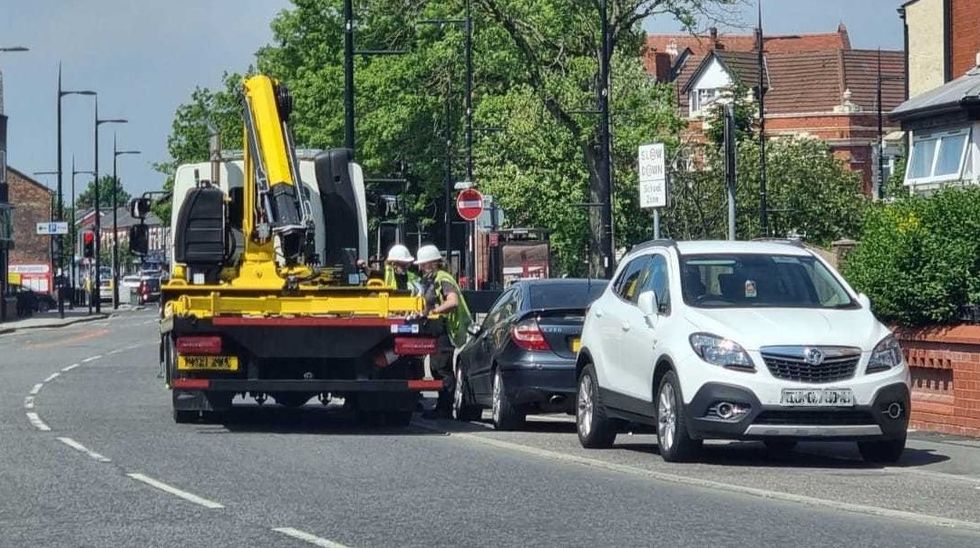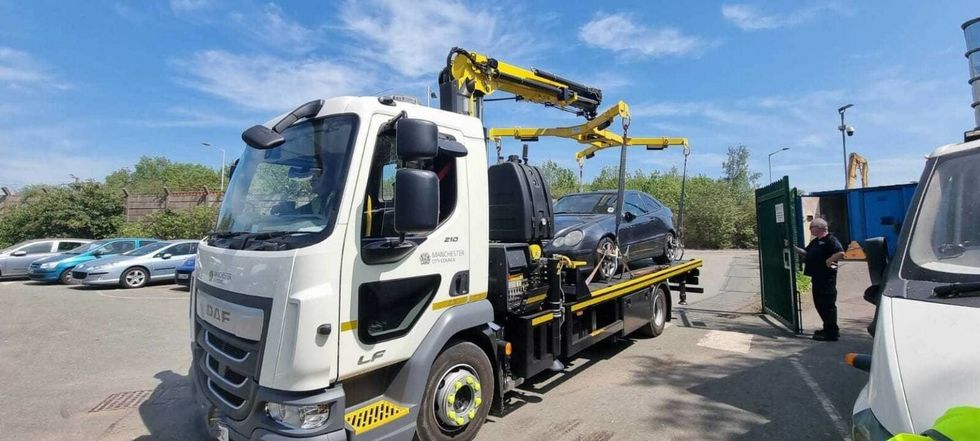WATCH: Major car tax changes launching within months could see motorists hit with huge fines
GB NEWS
Association of Vehicle Recovery Operators calls for higher recovery fees for untaxed vehicles
Don't Miss
Most Read
Trending on GB News
Drivers could face tougher penalties for untaxed vehicles under new proposals with urgent calls for rule changes for the time in 17 years.
It comes as growing calls for removal and storage fees for untaxed vehicles to be increased have gained traction and support from local operators.
The call by the Association of Vehicle Recovery Operators has demanded the Secretary of State for Transport review the current storage fees imposed on drivers for untaxed vehicles.
The organisation has written to Transport Secretary Heidi Alexander requesting an immediate review and hike of the removal and storage fees for untaxed vehicles.
Do you have a story you'd like to share? Get in touch by emailingmotoring@gbnews.uk

Experts have called for the vehicle recovery fee for untaxed cars to be hiked
DVLA
The proposed change would see the removal fee of £100 and dailystorage charge of £21 getincreased to £192 and£26respectively.
Currently, the DVLA is responsible for removing untaxed vehicles from public roads with many UK police forces, under devolved powers also undertaking the removals through the Vehicle Excise Duty (Immobilisation, Removal and Disposal of Vehicles) Regulations 1997 (the 1997 Act).
Mick Puleston, Head of the Association of Vehicle Recovery Operators said: "AVRO has requested a meeting with the Secretary of State for Transport to discuss removal and storage fees for untaxed vehicles and for these to be aligned with the 2023 statutory fees for vehicle removal, storage, and disposal.
"This adjustment would create a more sustainable rate for roadside recovery operators. Currently, operators face significant financial pressures in delivering their essential services and must be appropriately remunerated. Being required to work for rates introduced in 1995 is simply not sustainable."
The organisation explained that the increase in fees would help alleviate the disparity between the regulations and the subsequent financial strain for recovery businesses, which have been facing mounting pressures over the years.
AVRO argued that applying the outdated fees from the 1997 Act makes it "economically unfeasible" for operators to continue providing essential services.
But in response, the Department for Transport stated that fees are "continually reviewed" despite the last official one taking place in 2008.
Roadside recovery operators warned that they have faced significant financial pressures in providing the "crucial and critical service" and in return must be suitably remunerated.
Puleston added: "This issue is unsustainable for vehicle recovery operators’ businesses and may lead to both job losses and business closures.
"We look forward to a positive response from the Secretary of State and in the meantime, AVRO will be ready and willing to engage with the DfT on this crucial matter."
Through devolved police powers, they can charge the vehicle owner for the vehicle removal, storage and in some circumstances disposal or (potentially) destruction.
A correspondence on road policing detailed: "The majority of these vehicle recovery charges were last updated in 2008 and in respect of the charges prescribed in regulations made under the powers in the 1994 Act, they were last updated in 1995. As a result, the charges are no longer set at a suitable level for vehicle recoveries to remain operationally viable."
LATEST DEVELOPMENTS:
- Trump brands himself 'King' after removing daily costs for drivers in New York - 'Congestion pricing is dead'
- Cars have 'worrisome blind spots' that could ignore cyclists and pedestrians wearing high-vis jackets
- Labour council slaps thousands of drivers with enforcement warnings for breaking new air quality rules

Under the suggested proposal AVRO has called for fees to go up to £192
DVLA
According to reports, there are 84 Devolved Power Partners across England and Wales who work with the DVLA on removing untaxed vehicles from roads.








